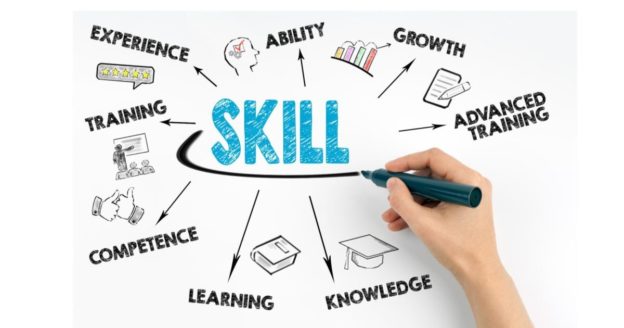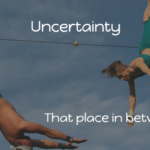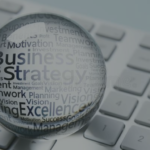Will talent become an individual or enterprise asset in the next normal? One thing is certain: continuous learning can no longer be a hobby.
The discussion around who will be responsible for making sure that economies and companies have the right skills and talent for next normal is already cranking up. The pandemic has impacted our education systems and employers are laying people off and cutting budgets. This has accelerated the discussion on a deeper issue of whether talent is an individual or enterprise asset. This is followed closely by how do we make sure that individual and business needs are aligned in the post pandemic workplace?
Who is responsible for skill acquisition?
Opinions have always been split about who is ultimately responsible for individual skill development. Generally it seems to be based on cultural perspectives. Is it the individual who invests (a strong US approach I have observed) or the employer and/or government found in other geographies? The jury is out. But it could be the decision will be taken out of our hands in the next normal.
Pre-COVID19 many of us played around with learning something new in our spare time, mainly because we enjoyed it. Sometimes we completed the course. Other times we didn’t. Today, continuous learning can no longer be a hobby, because it will be vital to our professional and economic survival.
The process of skill acquisition
The process of skill acquisition starts in our schools and universities. Any comments I might have on the education process itself would be about as convincing as Donald Trump sponsoring a #MeToo rally. So I won’t. I will just say that even before COVID19 we needed to refocus some complex questions around how effective our current educational curricula are to meet workplace needs. Is it even their role?
In a pandemic situation, it seems possible that remote learning programmes with a combo of distributed and classroom situations will become a feature of the way students learn going forward. That methodology once introduced may never change. This will involve looking at the infrastructure of schools and further education plus what and how we are teaching students. We will also need to and assess the skills of teachers to meet remote needs and then evaluating home schooling scenarios.
Parents know best? Not always
This concept assumes that non-school environments lend themselves to learning. This is not just about kids from less privileged backgrounds having reduced access to the internet or living space conducive to school work. It makes the assumption that parental influence is in the student’s best interests. Trust me it isn’t always. I’ve seen this in action personally dealing with helicopter parents
So let’s presuppose that students complete their formal education with some basic workplace skills that could be useful to organisations, what next?
Agility vs disposability
In the face of a global recession organisations are likely, post pandemic, to reduce the number of permanent employees and increase the number of contract and gig workers. This raises two questions:
- How will organisations find the skills they need if skill acquisition is the responsibility of individuals with a self-managed career?
- How will individuals know which skills to focus on? They will need to find a way to maintain their own relevance, employability and long-term economic viability.
Organisations will presumably need to hire for soft skills and then provide some sort of hard skill training to meet their own standards. Perhaps they may need go in the direction of the Dyson Institute which has started a university course to address the engineering skill gap. It is anticipated many traditional universities across the globe will face financial difficulties or even bankruptcy from the pandemic.
Personal development budgets
If increasingly skill acquisition becomes an individual responsibility, one thing is for sure continuous learning can no longer be a hobby going forward. We will all now need to allocate personal budgets for our ongoing professional education… for EVER. We certainly have to allocate far more than the 3% recommended by Brian Tracey. In many geographies professional development is considered a corporate responsibility. I have seen even senior executives on high six figure packages reluctant to fund their own career development. But the same people wouldn’t hesitate to drop a huge sum on a car, holiday or item of clothing. This will have to change.
Warren Buffett, one of the most successful businessmen in the world, said, “Investing in yourself is the best thing you can do. Anything that improves your own talents; nobody can tax it or take it away from you.”
This will also add an additional pressure to the lower paid.
Contract vs alliance
Heather E McGowan, future of work strategist, who I have referenced before, talks about learning and adapting in a world which is changing exponentially. She suggests that continuous learning is the new pension. It will certainly protect us and our revenue stream. It requires an open mind set and a willingness to experiment with anything new. We have to grasp that old school analogue type skills will not transfer to the digital world without additional work and training. The mantra of “that’s not the way we do things here” will have to go or those using it will go under.
Agility for an employer means disposability for the employee. Organisations will have to accept that they offer a temporary, but fixed term alliance not just a contract. Included in that understanding will be a commitment to upskill an employee before they move on. The upside would be their professional contribution for the duration of their working period. Businesses may also have to accept that agility means making sure employees can be re-hired to maintain their employer brand if they want to attract top talent. They will have to offer skill training which they know in advance they will eventually lose.
Skills for the next normal
The global pandemic has accelerated changes or conversations that were already in the pipeline. It will require mindset shifts in so many areas of education and skill development and how we assess and value those skills. Those shifts will be required by parents, educators, individuals and organisations alike. Schools and organisations will have to restructure. Recruiters will have to learn to recruit for soft skills and hiring for potential will become more than a Twitter meme.
Talent in the next normal may well be covered by the new mantra “Let them grow and let them go.”
Looking to strengthen your talent pipeline. Get in touch.





